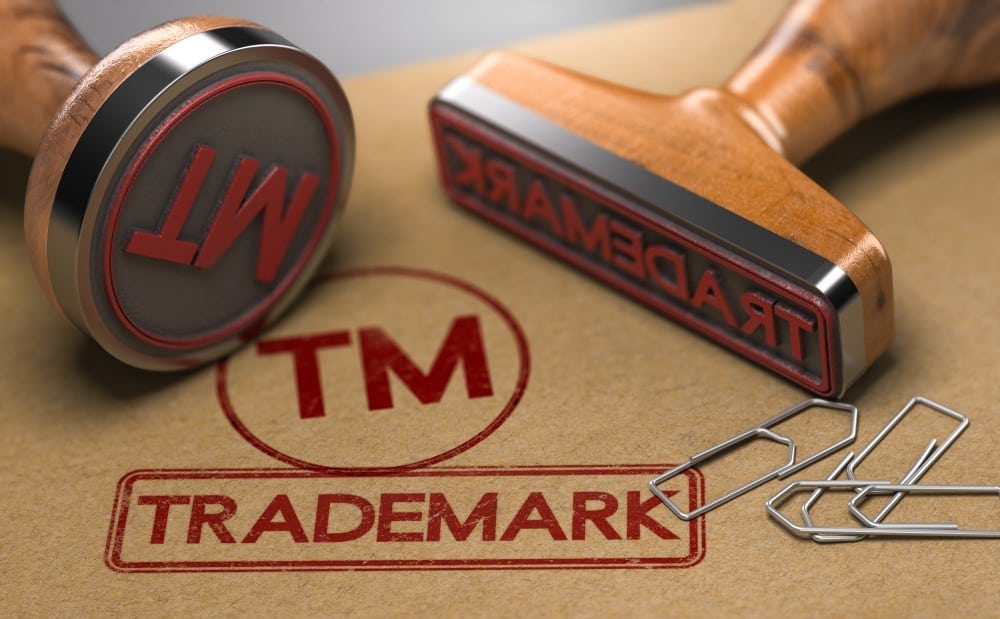An Attorney Explains the Correct Way to Write and Types of Japanese Agency Contract Documents

In business, it is relatively common to have your company’s products or services sold through agents. Utilizing agents not only allows you to reduce costs related to personnel expenses such as sales staff, but it is also attractive in that it allows you to build a large-scale sales network relatively quickly.
Therefore, we will explain how to create and the key points to consider when drafting an agency agreement with your agents.
What is an Agency Agreement?
The Structure of an Agency Agreement
An agency agreement is a basic arrangement where a principal entrusts the sale of their products or services to a sales agent. The sales agent then carries out advertising and promotional activities for these products or services to customers.
Types of Agency Agreements
From a legal perspective, sales through agency agreements can be divided into two types: brokerage and sales.
In a brokerage type, the sales agent only acts as an agent for the conclusion of the contract, and the effects of the contract related to the provision of products or services occur directly between the principal and the customer. In the case of a brokerage type sales agent, the sales agent’s revenue comes from the sales commission from the principal.
On the other hand, in a sales type, the principal and the sales agent enter into a purchase contract for the principal’s products or services, and the sales agent directly sells these purchased products or services to the customer. In the case of a sales type, the consideration for the products or services becomes the sales agent’s revenue.
Whether to choose the brokerage type or the sales type depends on the kind of revenue the sales agent wants to generate. This decision also involves accounting considerations, so it’s important for your company to carefully consider this.
Key Points to Check in an Agency Agreement

An agency agreement is a contract concluded between the principal and the sales agent. In this article, we will introduce typical clauses of an agency agreement and explain the key points to check for each clause. Please note that in the clause examples, ‘Party A’ refers to the principal and ‘Party B’ refers to the sales agent.
Provisions on Consignment Sales Methods
In the case of consignment sales, the following provisions shall apply:
(1) Party A grants Party B the right to sell the handled products under the sales conditions stated in the appendix. However, this does not grant the right to receive payment.
(2) Party B shall introduce potential users who may use the product.
(3) Party B shall strive to ensure that the product is continuously used and that the users are satisfied with its use, with the support of Party A.
(4) Party B shall conduct the sale of the product using the contract specified by Party A in advance. If there is no prior specification, Party B must clearly state to the contract partner that they do not have the authority to receive payment.
(5) Party B must state in the contract that they are involved in the sale of the product as an agent of Party A.
(6) No documents indicating the power of attorney or other agency rights shall be issued for each contract.
(7) All costs related to the conclusion of the contract shall be borne by Party B.
(8) Even if a situation arises where Party A cannot collect money from the contract partner after the contract is established, Party B shall not be held responsible.
(9) Party A grants Party B the right to act as a sales intermediary for the final users of the handled products, and unless otherwise specified in the appendix, does not grant any other permissions, including the appointment of a sub-agent.
(10) Notwithstanding the previous clause, if there is a special provision in the appendix, Party B may appoint a sub-agent with prior written notice to Party A (in the case of consignment sales, the sale of handled products by the sub-agent is referred to as “secondary consignment”). Upon arrival of the written notice to Party A, it is considered that Party A has granted permission. However, if Party A has the right to claim damages against the sub-agent due to apparent agency, transactional tort, or other similar acts related to the resale by the sub-agent, Party B shall guarantee the obligation jointly with the sub-agent.
The clause example is based on the consignment type among the types of agency contracts mentioned earlier. In the consignment type, the sales agent only acts as an agent for the conclusion of a contract that has an effect between the customer and the consignor. Therefore, it is necessary to clearly define the scope of the sales agent’s authority.
In the proviso of clause example (1), it is stipulated that the right to receive payment is not granted to the agent. Whether or not to grant the right to receive payment to the agent can go either way, but considering the importance of the right to receive payment, it is safer for the consignor not to grant it to the agent.
Clause example (10) stipulates the appointment of a sub-agent. If you allow the appointment of a sub-agent and further their agency, the responsibility in case of trouble with the customer tends to become ambiguous. However, in some cases, the appointment of a sub-agent is assumed when entrusting to a major sales agent. Therefore, whether to allow the appointment of a sub-agent should be judged according to individual transactions.
Provisions on Sale Method for Purchase and Sale Type
In the case where the sales method is of the purchase and sale type, the following provisions shall apply.
(1) Party A must accept the offer from Party B to purchase the handled goods under the sales method and conditions stated in the appendix.
(2) If Party A receives an offer from Party B to purchase the handled goods under a sales method and conditions other than those stated in the appendix, Party A must promptly accept or reject the offer.
(3) Party B shall, under its own responsibility, carry out all acts related to the sale of the goods to the users, including the use contract, in accordance with the format and method instructed by Party A.
(4) Party B must not approve the use license to the users in a format or method other than that determined by Party A without Party A’s permission. In case of changes, approval must be obtained from Party A in writing.
(5) All costs related to sales, contract conclusion, and receipt of fees shall be borne by Party B.
(6) Party B shall receive the usage fees under its own responsibility. Party A shall not bear any responsibility for damages related to the receipt of fees.
(7) Unless otherwise specifically provided in the appendix, Party B must sell the handled goods to the counterpart of Party A’s service provision as the contract partner. Sales of the handled goods by Party B to parties other than the counterpart of Party A’s service provision (hereinafter referred to as “secondary resale”) shall be considered as a breach of contract by Party B against Party A, and it is assumed that no damage will occur to Party B by cancellation or other actions by Party A.
(8) Notwithstanding the preceding paragraph, if there is a specific provision in the appendix, Party B may sell the handled goods to parties other than the counterpart of Party A’s service provision (hereinafter referred to as “resale destination”). However, all matters related to business, technology, and other support related to the resale destination shall be the responsibility of Party B, and Party A shall be exempted from all responsibilities.
This clause example assumes a purchase and sale type among the types of agency contracts. In the case of the purchase and sale type, it is generally the case that the sales agent, who concludes a contract with the customer and bears the contractual responsibility, is not so much bound by the consignor as compared to the brokerage type.
Therefore, naturally, the right to receive payment lies with the sales agent. Clause example (6) is a provision that stipulates this point in a cautionary manner.
What is somewhat personalityistic is that, as in clause example (1), as long as the predetermined sales conditions, etc. are followed, the consignor must always sell the goods or services to the sales agent.
However, in an agency contract, the sales agent assumes that it can always procure goods or services from the consignor and promotes sales, and it is unacceptable for the agent to be unable to provide goods or services despite receiving an application from the customer. Therefore, clause example (1) can be said to be an important clause for the agent.
Provisions Regarding Agency Sales Commission

1. If the sales method is agency-based and a contract related to the sales in question is established, Party A shall pay Party B the commission as stated in the appendix.
2. After the payment of the commission under this clause, if it is found that the contract related to the sales in question is invalid, and is cancelled or rescinded, or if Party A pays the contract partner damages or other money in relation to defects in the contract, Party B shall refund the commission to Party A.
In the case of a sales agency contract, the difference between the purchase price of the product and the sales price to the customer simply becomes the sales agency’s revenue. In contrast, in the case of an agency-based sales contract, the commission from the brokerage becomes the sales agency’s revenue, so it is necessary to stipulate the commission amount in the agency contract.
In the case of an agency-based sales contract, it is common for the agent to receive a commission on the condition that a contract for the provision of goods or services is established between the customer and the consignor. The amount of the commission may be set at a fixed amount per contract, such as “X yen per contract”, or it may be set in proportion to sales, such as “X% of the sales price”.
The most important thing in the provisions regarding sales commission is the conditions under which the commission is generated. Even if it is at the point when a contract is established between the customer and the consignor, the specific expression varies depending on the product or service being handled. For example, in the case of a sales agency for an app, it would be expressed as the point when the customer registers for the app provided by the consignor. To avoid ambiguity later, it is important to clearly define the conditions under which the commission is generated according to the product or service being handled.
Also, as in the second clause of the example, it is effective to stipulate cases that are not subject to commission payment even if a contract is established between the customer and the consignor. This is because there is a risk that the sales agency may inflate the number of contracts by using so-called shills to apply for contracts and then immediately cancel them, if there is an obligation to pay a commission even if the contract is invalidated or cancelled later.
Provisions Regarding the Delivery of Goods
In the case of tangible goods, the following provisions shall apply:
(1) The Party A shall directly deliver the goods to the contract partner.
(2) Notwithstanding the provision of the preceding paragraph, Party A may deliver the goods to Party B in advance, and Party B may directly deliver the goods to the contract partner. However, when Party B directly delivers the goods, they must immediately notify Party A of the product name, quantity, unit price, amount, and delivery date.
(3) The cost of the preceding paragraph shall be borne by Party A.
If the product is something that is entrusted to a sales agent, it is necessary to establish a method of delivery to the customer. Depending on who holds the inventory, the consignor or the sales agent, it is generally assumed that the consignor holds the inventory and directly delivers the product to the customer. Clause (1) is intended for such cases.
However, while the consignor holds the inventory of the product, it is also possible to request the sales agent to actually deliver the product. Since the sales agent is the customer’s point of contact, there are cases where it is smoother for the sales agent to directly deliver the product to the customer. Clause (2) is intended for such possible cases.
If the transaction only anticipates either clause (1) or (2), it is sufficient to stipulate only one of the clauses. On the other hand, if both cases are anticipated for each sales agent and customer, it would be advisable to stipulate as in the above clause examples.
Provisions on the Use of Trademarks

1. Party B must apply to Party A in advance if they wish to use the trademark for which Party A has usage rights, and must obtain Party A’s consent. The conditions for using the trademark that has been approved will be in accordance with Party A’s regulations.
2. Notwithstanding the preceding paragraph, Party A is presumed to have granted permission to use the trademark during the term of this contract, to the extent necessary for the intermediation or resale of the handled products.
A trademark is a mark (identifier) used by a business to distinguish its products or services from those of other companies. When these are applied to the Patent Office and trademark registration is obtained, the trademark right is acquired, and the registrant can exclusively use the trademark. For more details on intellectual property rights, including trademark rights, please refer to the following article.
https://monolith.law/corporate/intellectual-property-infringement-risk[ja]
When a sales agency promotes the products or services of the consignor, it is assumed that they will use the trademark. As a third party cannot use the trademark without the consent of the rights holder, it is stipulated in the first clause of the example clause that the consent of the rights holder, who is the consignor, must be obtained. For more details on the penalties for trademark infringement, please refer to the following article.
https://monolith.law/corporate/penalty-for-trademark-infringement[ja]
Furthermore, the second clause of the example clause presumes that the consignor, who is the rights holder of the trademark, has granted permission to use the trademark, except in cases where the consignor has specifically prohibited it, as it is naturally assumed that the agency will use the trademark when entrusted with sales.
Summary
While it’s not limited to IT companies, it’s common to entrust the sale of self-developed tools, apps, etc. to sales agents. There are several types of legal agency contracts, and the choice depends on where you want to generate sales from an accounting perspective, and how much responsibility the principal can accept under the contract from a business perspective. It’s important to arrange the contract so that such decisions can be legally implemented. Therefore, when creating an agency contract, we recommend consulting with a specialist such as a lawyer.
Introduction to Contract Creation and Review Services by Our Firm
At Monolith Law Office, as a law firm with strengths in IT, Internet, and business, we offer services such as the creation and review of various contracts, not limited to agency agreements, to our advisory and client companies.
If you are interested, please see the details below.





















